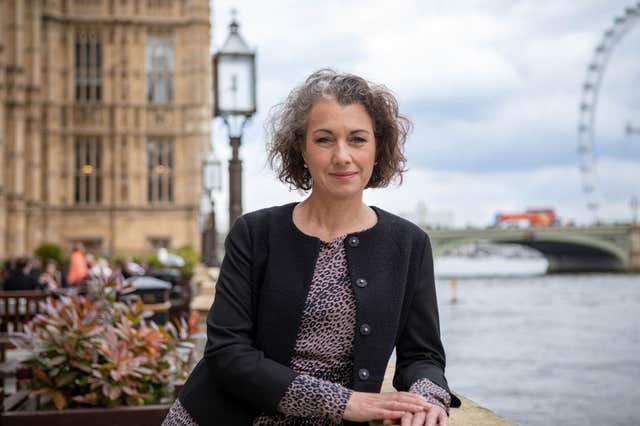UK aid money has been invested in an Indian fund that backed a social media site featuring offers of sexual services and glorification of the Hamas attack on Israel, a watchdog has found.
The Independent Commission for Aid Impact (ICAI) warned that some investments by the UK’s development finance institution British International Investment (BII) opened it up to “major reputational risks”.
BII is owned by the Foreign, Commonwealth and Development Office (FCDO).
The watchdog raised serious concerns about BII’s oversight and due diligence after it found that eight million dollars (£6.4 million) in taxpayer-aided funding last year went to India Quotient Fund IV, which invested in a cosmetics company, a debt collection business and three social media platforms.
ICAI said that harmful material, including the abuse of women, could easily be posted on one of those sites, ShareChat.
But BII defended ShareChat’s “robust content moderation”, saying it swiftly removes any offensive content posted by a “tiny fraction” of its users, and highlighted the multi-language network’s role in furthering digital inclusion.
ICAI’s chief commissioner Dr Tamsyn Barton, who led the review of UK aid to India, said: “Given how difficult it is to moderate large social media platforms to remove harmful content, we have to question why BII chose to invest in the India Quotient Fund and did not consider the reputational risk.
“How is this an appropriate investment for UK aid, which must have poverty reduction as its goal? It is just not clear why use of capital from UK taxpayers is justified for investments in social media sites.
“While we have seen some positive progress in response to other recommendations on UK aid to India, including on tackling climate change and engaging with civil society groups, we are clear that to be effective the portfolio must be coherent and take into account the needs of poor and marginalised people so that they get the benefit of India’s economic growth.”
BII’s investment in the Indian fund was made two months after its chief executive in April 2023 reassured Parliament’s International Development Committee that investments in India would only be made if they scored highly on inclusion and sustainability and had clear results for poverty reduction.

It came after the committee tasked with scrutinising UK aid spending raised concerns about “questionable investments” by BII including in an Indian cosmetic surgery clinic.
In response to ICAI’s review, committee chairwoman Sarah Champion said: “BII’s responsible investing policy appears to have been egregiously breached in India, with finance given to a social media platform where offers of sexual services and glorification of Hamas’s attacks on Israel can be found.
“Despite problems around the world with moderation of hateful and illegal content on such platforms, this investment was not even referred to BII’s risk committee.
“To add to our specific concerns about BII losing track and control of the outcomes of its spending through financial intermediaries, just two months after that assurance from its executives last year BII invested in the India Quotient Fund IV.
“That fund already had substantial holdings in such social media platforms, and in cosmetics businesses, and had scored only four out of 10 on BII’s own impact index. Where is the focus on poverty reduction, where is the focus on responsible investment – and where is the due process in governance at BII?”
Labour MP Ms Champion said the International Development Committee would be writing to BII and Foreign Secretary Lord David Cameron as its sole shareholder to demand “some new and more credible answers on these issues”.
BII, which invests in businesses and programmes in the developing world, has taken steps to improve its poverty focus, but its 2023 India country strategy does not yet appear to be shaping investments sufficiently, ICAI said.
Gideon Rabinowitz, director of policy and advocacy at the UK network for NGOs Bond, said: “It is concerning that BII, which has received over £4 billion from the UK aid budget in recent years, thinks women’s economic empowerment and poverty reduction can be achieved by spending a huge amount of UK aid on questionable cosmetics, dating apps and social media businesses.
“The UK government needs to hold BII to account and ensure that British taxpayers’ money is invested in local businesses that support local development and prioritise the needs of local communities, both in India and other countries where BII operates.”
A BII spokesperson said: “ICAI recognise our new approach in India and its convincing links to poverty reduction. Backing local entrepreneurs to solve ingrained development challenges is a key part of this. The investments highlighted by ICAI tackle digital exclusion and economic barriers to gender equality.
“ShareChat offers services in 14 regional languages, helping the digital inclusion of millions of non English-speaking Indians. It has robust content moderation and quickly removes any offensive content which, like on any social media platform, a tiny fraction of its users may post.
“Sugar Cosmetics is a woman-led manufacturing business with women comprising about 70% of its workforce in a country where the average participation rate is 28%. The growth of such a business is a source of pride for BII and not a reputational risk.”
The FCDO has been contacted for comment.

